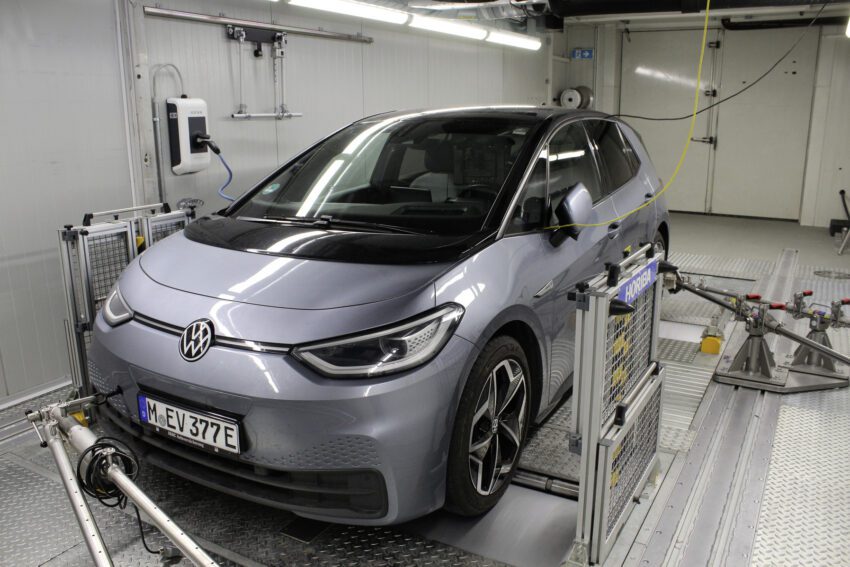
Volkswagen ID.3 loses just 8 miles of range after 107,000 miles
A four-year-old Volkswagen ID.3 that has covered almost 110,000 miles lost just 8 miles of effective range, according to testing by the German equivalent of the AA.
The ADAC reported that the hatchback had lost 9% of its usable capacity after four years of hard use at the hands of its engineers. However, the usable range had fallen less thanks to software updates that improved the car’s efficiency over its lifetime.
The 77kWh ID.3 Pro S was the first ID model to undergo ADAC’s rigorous endurance testing, which aimed to get the car to 160,000km (107,000 miles) as quickly as possible.
To do so, testers ignored the recommendations around battery care and repeatedly rapid-charged the car, often leaving it sitting on the charger at 100% charge for several days. Both are seen as “unfavourable” for long-term battery health. In total, 40% of the car’s charging sessions were at rapid devices.
Despite that, the ID.3’s battery lost less than 10% of its capacity – well within the range of the warranty, which guarantees at least 70% usable capacity after 160,000km.
The ADAC testing noted that at 13,500 miles the car retained 96% of its capacity, a figure it sustained until 43,200 miles. At that point it dropped to 95% where it remained until 52,400 miles. It then gradually dropped to 91% at 90,600 miles where it remained for the rest of the testing period.
Based on the ADAC’s own figures rather than the official WLTP testing, the ID.3 began life with a maximum range of 272 miles. After 107,000 miles, that had dropped only marginally, to 264 miles.
The testers noted that software updates had helped improve the car’s efficiency over the last four years, as well as delivering a major improvement in charging. When new, lab testing returned 3.1m/kWh but after four years, that had improved to 3.4m/kWh. In the real world after 107,000 miles, it had averaged 2.7m/kWh.
Charging was upgraded via over-the-air updates, rising from a peak of 125kW to 160kW, supported by an improvement in the charging curve on rapid devices.
The testing supports other assessments which have repeatedly shown that battery degradation is exaggerated as a problem. The most recent estimates from Geotab are that modern EVs lose as little as 1% capacity per year, backed up by independent data gathered by Which?.
A separate study by battery health specialists Generational shows that degradation is falling all the time as new models bring improved battery technology and care, and that high mileages have a minimal impact on overall battery life.